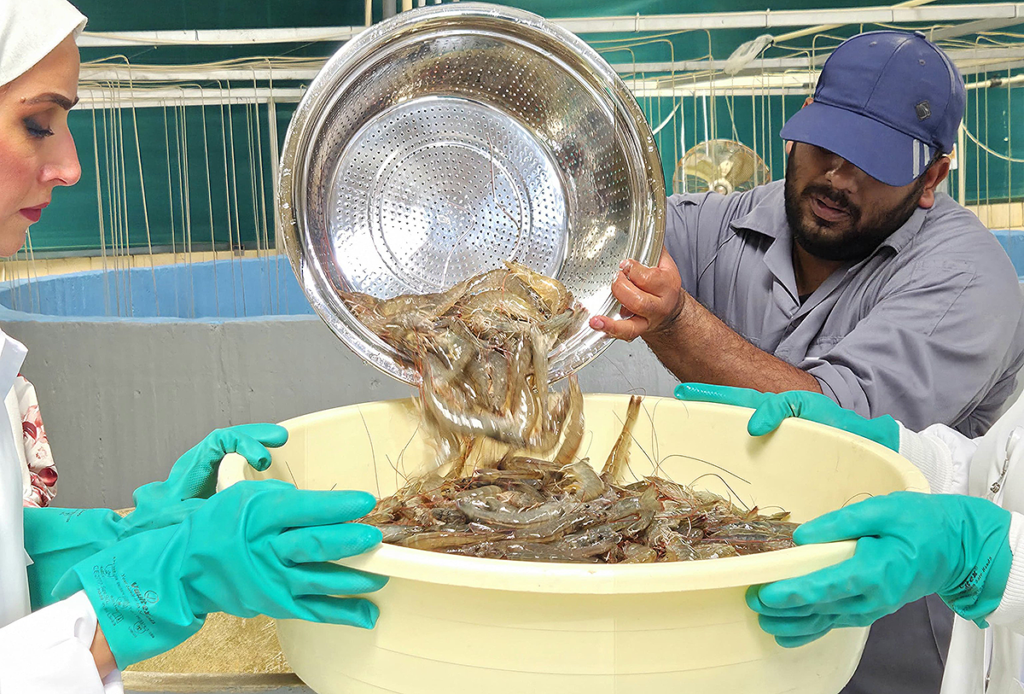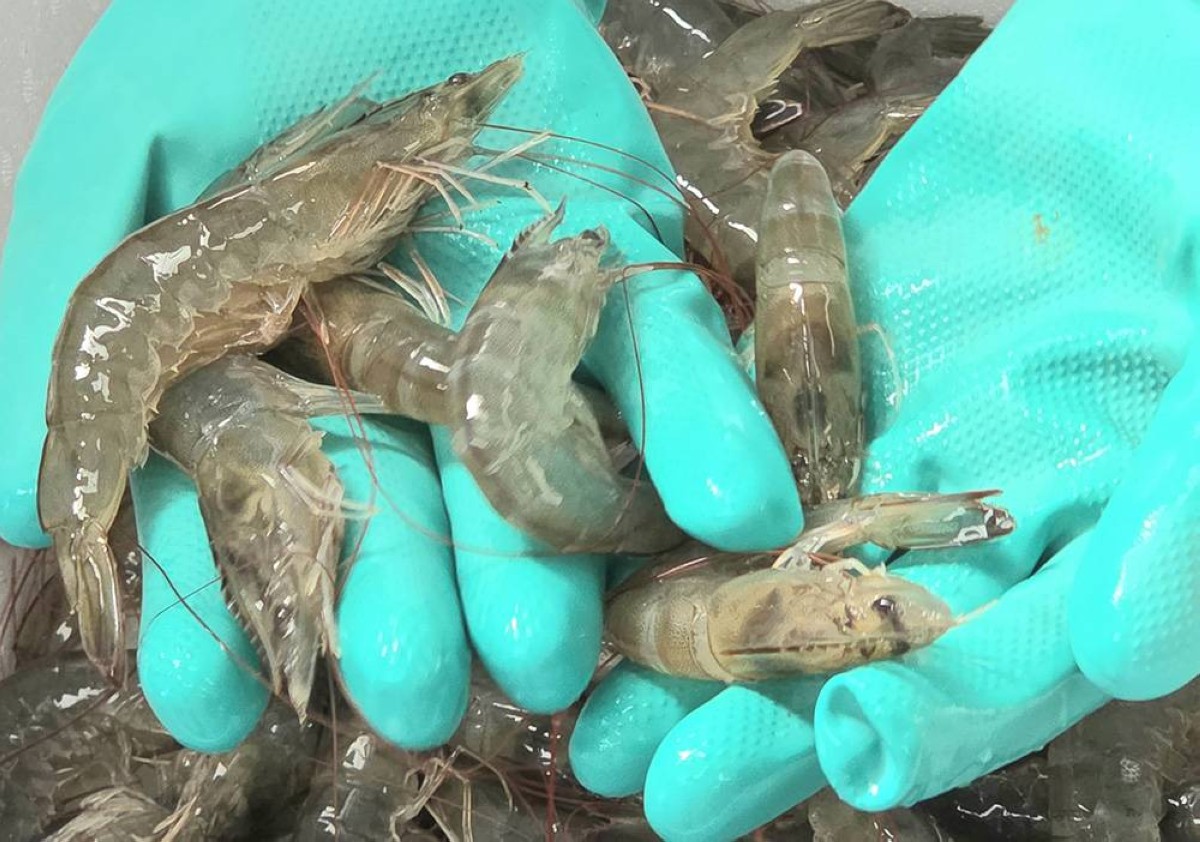Kuwait shrimp farming has achieved a major milestone in 2025 by completing its fourth consecutive year of successful production, marking a positive step toward strengthening food security and reducing dependence on imported seafood. This progress reflects Kuwait’s growing dedication to sustainable agriculture and aquaculture in line with its national development goals.
Over the past four years, the Kuwaiti government, in cooperation with local investors and marine experts, has focused heavily on expanding and improving shrimp farming techniques. With rising demand for locally sourced food and growing environmental concerns around over fishing, Kuwait’s strategic investment in this sector is beginning to show long-term results.
Local Production Reaches New Heights
According to the Public Authority for Agricultural Affairs and Fish Resources (PAAAFR), Kuwait shrimp farming produced over 2,400 tons of whiteleg shrimp (Litopenaeus vannamei) in the last season, compared to 1,850 tons the year before. This 29% increase showcases the efficiency and growth of domestic aquaculture operations.
Currently, most shrimp farms are located in the northern and southern coastal regions of Kuwait, where the water salinity and temperature support optimal breeding and harvesting conditions. Advanced technology such as recirculating aquaculture systems (RAS) and biofloc systems have also helped farmers improve survival rates and cut down environmental waste.

Boosting Food Security and Cutting Imports
One of the main benefits of the growth in Kuwait shrimp farming is its direct impact on food security. Kuwait, like many Gulf nations, has historically relied on seafood imports to meet consumer demand. However, recent global disruptions and price hikes in the international seafood market have highlighted the importance of local food resilience.
With consistent success over the past four years, locally produced shrimp now account for nearly 40% of the national consumption, a significant jump from just 10% in 2020. This not only improves food self-sufficiency but also supports sustainable fishing practices in the region.
Local supermarkets and restaurants have also embraced the quality and freshness of Kuwaiti shrimp, providing customers with an affordable and Eco-friendly alternative to imported seafood. Many consumers report a preference for homegrown shrimp due to its taste, traceability, and freshness.
Government Support and Innovation
The Kuwaiti government has been instrumental in supporting the shrimp farming sector. Through policy incentives, land grants, and technical training, it has helped new entrepreneurs enter the aquaculture business and scale up their operations.
The government has also worked with international partners to train local experts and bring in best practices from leading shrimp-producing countries such as Thailand, Ecuador, and India. Workshops and seminars on disease control, water quality management, and feed efficiency have boosted the knowledge of local farmers, helping maintain high standards of production.
Environmental and Economic Benefits
Besides food security, Kuwait shrimp farming offers multiple environmental and economic advantages. Controlled shrimp farming helps reduce pressure on wild marine life, especially during seasonal fishing bans. By adopting eco-friendly farming practices, Kuwait is taking steps to preserve its marine biodiversity and support long-term ecological health.
Economically, the industry creates hundreds of jobs in coastal regions, particularly in rural areas where employment opportunities are limited. From hatchery technicians and farm operators to logistics and retail staff, shrimp farming supports a growing segment of Kuwait’s labour force.
Experts suggest that the industry could generate up to KD 15 million annually in economic value if current growth trends continue, with the potential for export in the near future.
Looking Ahead: Challenges and Goals
Despite its success, the Kuwait shrimp farming industry still faces challenges. Rising costs of feed, water usage concerns, and disease outbreaks remain potential threats. However, researchers and policymakers are actively working on solutions such as alternative feed sources, water recycling systems, and better disease surveillance programs.
The goal for the next five years is to increase production by at least 20% annually, while maintaining sustainable practices. Plans are also underway to launch an export-oriented shrimp brand, which would put Kuwaiti shrimp on the international market.
In addition, educational programs for young entrepreneurs and students are being developed to attract more talent into the aquaculture sector. This youth engagement strategy is essential for ensuring a long-term future for Kuwait’s blue economy.

A Model for Gulf Nations
Kuwait’s successful journey in shrimp farming has begun to serve as a model for neighbouring Gulf countries. With similar climate conditions and import-reliant economies, many nations are now observing Kuwait’s strategies closely. Delegations from Bahrain, Oman, and the UAE have already visited Kuwaiti farms to explore partnerships and knowledge sharing.
As the Gulf continues to face rising food demand and limited agricultural space, aquaculture presents a realistic and scalable solution. Kuwait’s example proves that with the right investment, support, and technology, even small nations can transform their food systems sustainably.
Conclusion
With four years of consistent success, Kuwait shrimp farming has not only proven its economic and environmental value but also reinforced the country’s commitment to food security and sustainable development. Through innovation, policy support, and public-private collaboration, Kuwait is turning its coastline into a thriving hub of aquaculture.
As the industry looks ahead to further growth, one thing is clear the shrimp revolution in Kuwait is just beginning, and it promises a brighter, more resilient future for the country’s food landscape.
Do follow Gulf Magazine on Instagram
Also Read – Sheikha Bodour Thanks Unesco 7 Powerful Reasons for Honour



